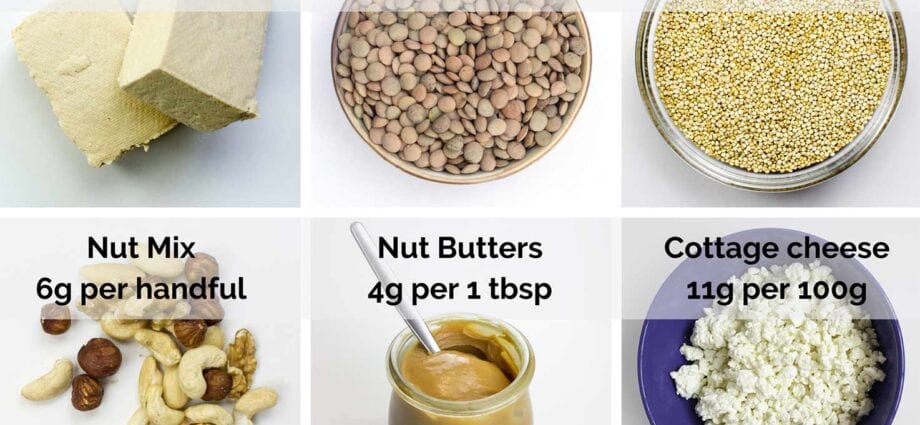Contents
The vegetarian food system has been practiced in the countries of the East and in India for a long time for religious reasons. Now this power system is widespread throughout the world.
Many people believe that vegetarianism in Russia is a new fashion trend, but few know that it spread widely in Russia at the beginning of the XNUMXth century thanks to the St. Petersburg society “Neither Fish nor Meat”, headed by Alexander Petrovich Zelenkov, Doctor of Medical Sciences.
Vegetarianism and its types
Vegetarianism Is a food system in which people refuse animal products, and in some cases, fish, seafood, eggs and milk.
There are more than fifteen types of vegetarianism, the most common are:
- Lacto-vegetarians – do not eat meat, fish, eggs, but eat dairy products and cheeses without the addition of rennet.
- Ovo-vegetariancy – refuse all types of meat and dairy products, but eat eggs.
- Sandy vegetarians – eat fish and seafood, and refuse only animal meat.
- Vegans – This is one of the strictest types of vegetarianism in which a person refuses all types of animal products.
- Raw foodists – Eat only raw herbal products.
Such a division into types of vegetarianism can be considered conditional, a person himself decides which products he should refuse, and which ones to leave in his diet.
Problems switching to vegetarianism
Vegetarianism, like any other dietary system, can bring both benefits and harm to your body. Having decided on this step, the first thing to do is to consult a doctor. Vegetarianism is contraindicated in certain diseases of the gastrointestinal tract, anemia and pregnancy. And then, if there are no contraindications, contact an experienced nutritionist – he will help you create a balanced menu so that the body does not experience a deficiency in vitamins and trace elements.
The first problem when switching to vegetarianism seems to be a poor diet. But these days there is such a variety of foods that a vegetarian diet can hardly be called meager, just make an effort and you will find thousands of vegetarian recipes. In addition, spices come to the rescue, they complement dishes and are very common in vegetarian diets.
The second problem can be weight gain. It is generally accepted that there are few overweight people among vegetarians, this is far from always the case. Refusing meat, a person looks for a satisfying alternative and eats a lot of pastries, adds fatty sauces to dishes. To prevent this from happening, the diet must be formulated correctly, taking into account the balance of proteins, fats and carbohydrates.
The third problem is a deficiency of protein and useful micronutrients, as a result of a constant feeling of hunger. If the diet is composed incorrectly and only dishes of the same type prevail in it, the body receives less nutrients and begins to rebel. A beginner vegetarian needs to include nuts, legumes, and dairy products in their diet.
Where to get protein
Where do you get the protein? This is the most frequently asked question for a vegetarian. In the understanding of many people, protein is found only in animal products, but this is not the case. The daily protein intake for an adult who is not involved in sports is 1 gram per 1 kilogram of body weight (according to WHO). This amount can be easily obtained from legumes such as soy, lentils, beans, and chickpeas, as well as cottage cheese, spinach, quinoa, and nuts. Protein quality also matters, essential amino acids, as previously thought, can only be obtained from animal products, but at the moment there is research proving that this is not the case. The protein found in soy and quinoa is considered high quality protein.
Substitute products
Taste is considered an important aspect. Many people are simply accustomed to the taste of meat, fish and sausage, and it is difficult for them to give up their favorite foods, the taste of which is well known from childhood. How to cook vegan Olivier, mimosa or herring under a fur coat? In fact, the taste of many of your favorite foods can be imitated. For example, the taste of fish can be achieved with the help of nori sheets, and the pink Himalayan salt will give the taste of eggs to any dish; instead of meat, you can add seitan, Adyghe cheese and tofu to the dishes. Also, manufacturers specializing in the production of vegetarian sausages have appeared on the market. It is made, as a rule, from wheat and soy protein with the addition of spices.
The most important thing when going vegetarian is not to go to extremes. The transition should be smooth, without stress for the body and psyche. Everyone determines the pace for himself. Someone passes in a month, while someone may need a year. A well-balanced diet is the key to health, do not ignore this issue and consult a dietitian – this will help to avoid most of the problems.










